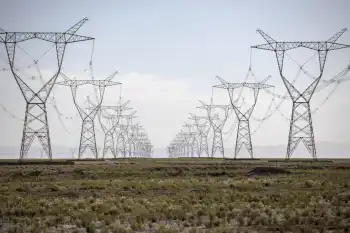Is green spending and job creation compatible?
By The Economist
High Voltage Maintenance Training Online
Our customized live online or in‑person group training can be delivered to your staff at your location.

- Live Online
- 12 hours Instructor-led
- Group Training Available
Mr Obama is right that many governments, not least his own, are spending heavily in a bid to create green jobs. Countries as diverse as Canada, China, France and Indonesia have vowed to cultivate greenery in an effort to fertilize their wilting economies.
Religious leaders, trade unionists and the secretary-general of the United Nations, among others, have hailed green stimulus as a cure for the world economyÂ’s ills. After all, it holds out the hope of a triple benefit: a return to economic growth, deliverance from global warming and an escape from dependence on imported fuels, all wrapped up in an appealingly high-tech package.
There is no shortage of studies on green jobs that support this optimistic view. The Center for American Progress, a think-tank with close ties to Mr ObamaÂ’s administration, called last year for the government to spend $100 billion on various green initiatives. The reward, it calculated, would be 2 million jobs.
Roland Berger, a firm of consultants, wants the German government to do something similar. It estimates that global spending on environmental technology is €1 trillion ($1.3 trillion) a year, and will grow by 5.4% a year until 2020. This business sustains 1.5 million jobs in Germany, by its reckoning. But the number could double, the consultants believe, if the government offered more tax breaks, subsidies and other incentives for investment in greenery. The United Nations Environment Programme has produced a report lauding government schemes to promote green employment. It sees scope for ten times as many jobs in clean energy by 2030.
Critics of these studies, however, argue that they leave important questions unasked. For one thing, it is hard to know how impressive the employment figures are without considering how many jobs would be created by spending the money in other ways. A recent paper from the Peterson Institute of International Economics and the World Resources Institute, two think-tanks, tries to do just that for America’s stimulus package. It finds that $1 billion in green-tinted spending creates 30,100 “job-years”. That compares well with 25,200 job-years for road construction and only 7,000 for temporary tax cuts (permanent ones do better).
The green stimulus schemes the authors looked at perform so well because they catalyze private investment in things like windmills and fuel-efficient cars. But that also flatters the employment numbers, in so far as the authors assume that the stimulus induces private spending that would not otherwise occur. They note that if it simply redirects capital from one use to another, then the number of jobs created might not be so great.
What is more, public investment in green technology brings costs as well as benefits. Taxpayers, for example, will ultimately have to pay for government debt, while prodigious government borrowing makes it harder for businesses to raise money. Spending on renewable electricity, meanwhile, tends to raise the price of power, since wind- and solar-power plants cost more to build and run than coal-fired ones, say. These effects can cost jobs.
In 2006, in a study prepared for a pro-coal lobbying group, Adam Rose and Dan Wei of Pennsylvania State University looked at how increasing the share of renewables in electricity generation at the expense of coal might affect employment. Displacing a third of generation from coal by 2015 would put 1.2 million people out of work, they concluded, and displacing two-thirds would raise the figure to 2.7 million. The job losses came chiefly as a result of higher energy prices.
Those findings, however, are based on modelling, with all the complications and caveats that entails. Mr Rose’s subsequent research, using different assumptions, has produced more ambiguous results. By contrast, Gabriel Calzada �lvarez, a professor at King Juan Carlos University in Madrid, has tried to use empirical data to estimate how Spain’s subsidies for renewables, which so impressed Mr Obama, will affect employment. He calculates that the subsidies for existing renewable-electricity plants, which the government has promised to pay for 25 years, will cost €29 billion. Those subsidies, in turn, have created 50,200 jobs, according to data from the European Commission. That equates to a subsidy of over €570,000 per job.
Spain’s private sector, on the other hand, creates a job for every €260,000 or so invested, by Mr Calzada’s reckoning. So if the government had left the €29 billion in the hands of the private sector, it would have created 113,000 jobs with it — 2.2 times as many. In other words, the government, Mr Calzada finds, is destroying 2.2 ordinary jobs for every green one it creates.
The result is particularly garish because SpainÂ’s subsidies for renewables have been so generous (it recently scaled them back for new projects). Green subsidies bring other benefits that Mr Calzada does not consider, such as reducing demand for, and thus the price of, fossil fuels.
The biggest benefit of all, of course, is to the environment, in the form of reduced emissions of greenhouse gases. Taking all of that into account would doubtless make the numbers look better. Nonetheless, Mr Calzada’s paper does suggest that Mr Obama should temper his enthusiasm for Spain’s “bold investments” in renewable energy.
As all the studies discussed suggest, some ways of creating jobs — or fighting global warming, for that matter — are cheaper than others.











